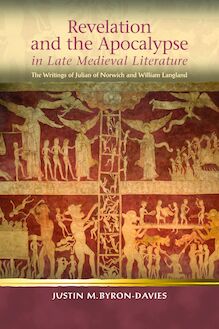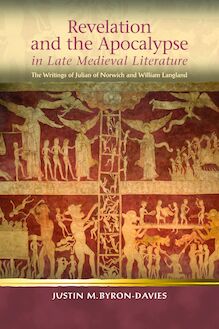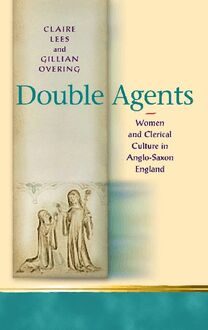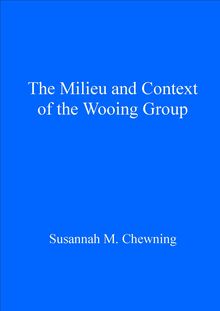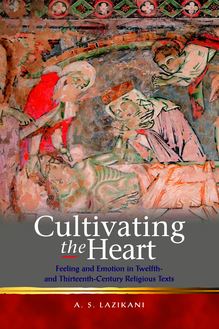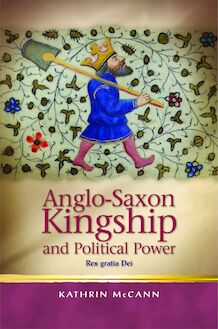-
 Univers
Univers
-
 Ebooks
Ebooks
-
 Livres audio
Livres audio
-
 Presse
Presse
-
 Podcasts
Podcasts
-
 BD
BD
-
 Documents
Documents
-
- Cours
- Révisions
- Ressources pédagogiques
- Sciences de l’éducation
- Manuels scolaires
- Langues
- Travaux de classe
- Annales de BEP
- Etudes supérieures
- Maternelle et primaire
- Fiches de lecture
- Orientation scolaire
- Méthodologie
- Corrigés de devoir
- Annales d’examens et concours
- Annales du bac
- Annales du brevet
- Rapports de stage
La lecture à portée de main
Vous pourrez modifier la taille du texte de cet ouvrage
Découvre YouScribe en t'inscrivant gratuitement
Je m'inscrisDécouvre YouScribe en t'inscrivant gratuitement
Je m'inscrisEn savoir plus
Vous pourrez modifier la taille du texte de cet ouvrage
En savoir plus

Description
Works on Anglo-Saxon kingship often take as their starting point the line from Beowulf: ‘that was a good king’. This monograph, however, explores what it means to be a king, and how kings defined their own kingship in opposition to other powers. Kings derived their royal power from a divine source, which led to conflicts between the interpreters of the divine will (the episcopate) and the individual wielding power (the king). Demonstrating how Anglo-Saxon kings were able to manipulate political ideologies to increase their own authority, this book explores the unique way in which Anglo-Saxon kings understood the source and nature of their power, and of their own authority.
Acknowledgments
Abbreviations
Timeline of Events
Introduction
Early Anglo-Saxon Politics
Diploma Politicum
The Anglo-Saxon Regina Gratia Dei
Reformers and Rulers
Rituals of King-Making
Conclusion
Appendix 1: Anglo-Saxon Kings
Appendix 2: Anglo-Saxon Archbishops
Appendix 3: Charter Elements
Table 1: Royal Styles
Table 2: Frequency of Legitimation Formulas
Table 3: Variants of Legitimation Formulas
Table 4: Historical Context
Table 5: Consecration Vocabulary in Charters
BIBLIOGRAPHY
Primary texts
Secondary texts
Websites
Sujets
Informations
| Publié par | University of Wales Press |
| Date de parution | 15 octobre 2018 |
| Nombre de lectures | 0 |
| EAN13 | 9781786832948 |
| Langue | English |
Informations légales : prix de location à la page 0,2500€. Cette information est donnée uniquement à titre indicatif conformément à la législation en vigueur.
Extrait
RELIGION AND CULTURE IN THE MIDDLE AGES
Anglo-Saxon Kingship and Political Power
Series Editors
Denis Renevey (Université de Lausanne)
Diane Watt (University of Surrey)
Editorial Board
Miri Rubin (Queen Mary University of London)
Jean-Claude Schmitt (École des Hautes Études en Sciences Sociales, Paris)
Fiona Somerset (Duke University)
Christiania Whitehead (University of Warwick)
RELIGION AND CULTURE IN THE MIDDLE AGES
Anglo-Saxon Kingship and Political Power
REX GRATIA DEI
KATHRIN McCANN
© Kathrin McCann, 2018
All rights reserved. No part of this book may be reproduced in any material form (including photocopying or storing it in any medium by electronic means and whether or not transiently or incidentally to some other use of this publication) without the written permission of the copyright owner except in accordance with the provisions of the Copyright, Designs and Patents Act. Applications for the copyright owner’s written permission to reproduce any part of this publication should be addressed to the University of Wales Press, University Registry, King Edward VII Avenue, Cardiff CF10 3NS.
www.uwp.co.uk
British Library Cataloguing-in-Publication Data
A catalogue record for this book is available from the British Library.
ISBN: 978-1-78683-292-4 eISBN: 978-1-78683-294-8
The right of Kathrin McCann to be identified as author of this work has been asserted in accordance with sections 77 and 79 of the Copyright, Designs and Patents Act 1988.
The publisher has no responsibility for the persistence or accuracy of URLs for any external or third-party internet websites referred to in this book, and does not guarantee that any content on such websites is, or will remain, accurate or appropriate
Cover image: Textualis Quadrata, fol. 24r (detail), Brotherton Collection BC MS 1/47; reproduced with the permission of Special Collections, Leeds University Library. Cover design: Olwen Fowler
C ONTENTS
Series Editors’ Preface
Acknowledgements
List of Abbreviations
Timeline of events
Introduction:
From Filius Ecclesiae to Defensor Ecclesiae
Emancipated Kings or Bishops’ Bailiffs?
Conclusion
1 Early Anglo-Saxon Politics
Case Study I: Joint Kingship (Essex)
Case Study II: Overlordship (Sussex)
Case Study III: Conquest and Coinage (Mercia)
Case Study IV: Kingship and Legislation (Kent)
Case Study V: Royal Education (East Anglia)
Case Study VI: Abdicating Kings (Wessex)
Case Study VII: Saintly Royalty (Northumbria)
Conclusion
2 Diploma Politicum
The Functional Title in the Royal Styles
The Legitimation Formula in the Royal Styles
Conclusion
3 The Anglo-Saxon Regina Gratia Dei
Queenly Behaviour
Throneworthy Queens
Queenly Power
Conclusion
4 Reformers and Rulers
Ecclesiastical Politics I: Edgar – Royal Action
Ecclesiastical Politics II: Æthelred – Divine Retribution
Ecclesiastical Politics III: From Speculum Principis to Speculum Societatis
Conclusion
5 Rituals of King-making
The Development of the Royal Consecration Ritual
The Anglo-Saxon Consecration Ritual
Edgar’s Coronation
Visualising Rituals: Art and Architecture
Conclusion
Conclusion
Appendices
Appendix 1: Anglo-Saxon Kings
Appendix 2: Anglo-Saxon Archbishops
Appendix 3: Charter Elements
Tables
Table 1: Royal Styles
Table 2: Frequency of Legitimation Formulas
Table 3: Variants of Legitimation Formulas
Table 4: Historical Context
Table 5: Consecration Vocabulary in Charters
Bibliography
Primary texts
Secondary texts
Websites
Notes
S ERIES E DITORS’ P REFACE
Religion and Culture in the Middle Ages aims to explore the interface between medieval religion and culture, with as broad an understanding of those terms as possible. It puts to the forefront studies which engage with works that significantly contributed to the shaping of medieval culture. However, it also gives attention to studies dealing with works that reflect and highlight aspects of medieval culture that have been neglected in the past by scholars of the medieval disciplines. For example, devotional works and the practice they infer illuminate our understanding of the medieval subject and its culture in remarkable ways, while studies of the material space designed and inhabited by medieval subjects yield new evidence on the period and the people who shaped it and lived in it. In the larger field of religion and culture, we also want to explore further the roles played by women as authors, readers and owners of books, thereby defining them more precisely as actors in the cultural field. The series as a whole investigates the European Middle Ages, from c .500 to c .1500. Our aim is to explore medieval religion and culture with the tools belonging to such disciplines as, among others, art history, philosophy, theology, history, musicology, the history of medicine, and literature. In particular, we would like to promote interdisciplinary studies, as we believe strongly that our modern understanding of the term applies fascinatingly well to a cultural period marked by a less tight confinement and categorization of its disciplines than the modern period. However, our only criterion is academic excellence, with the belief that the use of a large diversity of critical tools and theoretical approaches enables a deeper understanding of medieval culture. We want the series to reflect this diversity, as we believe that, as a collection of outstanding contributions, it offers a more subtle representation of a period that is marked by paradoxes and contradictions and which necessarily reflects diversity and difference, however difficult it may sometimes have proved for medieval culture to accept these notions.
A CKNOWLEDGEMENTS
Any project that takes years to ripen accumulates many debts. While it is often implicitly understood that there are other scholars whose work informs some new project, I should like to express my gratitude to all the medievalists who have gone before: their work inspired me, their ideas informed mine and their inquiries raised my curiosity and desire to pursue my own interests in the field of Anglo-Saxon studies.
There is a handful of academics in particular to whom I owe special thanks: Professor Dr Thomas Honegger (Jena), whose friendship has supported me since he first taught me, to my ‘Doktorvater’ Professor Hugh Magennis (Belfast), who supported me throughout, to Professor Andy Orchard (Oxford), who encouraged me to pursue this monograph, to Professor Denis Renevey (Lausanne), who recommended a good home for it, and to other academics who read this work, among them Professor Vincent Gillespie (Oxford) and the anonymous reviewer of the University of Wales Press.
I also owe debts of gratitude to my friends and colleagues at the Humanities Division at the University of Oxford, foremost Miss Martha Buckley, who patiently read this work and was a huge help in revising it. My greatest debt and thanks goes to my parents, to my loving husband Daniel, and my little Eloise.
This work is dedicated to all of them.
A BBREVIATIONS
(See Bibliography for full reference.)
ASC
Anglo-Saxon Chronicle (eds. Plummer, Rositzke, Classen and Harmer).
ASPR
Anglo-Saxon Poetic Records
Asser
Life of King Alfred , cited according to chapter (ed. Stevenson, trsl. Keynes and Lapidge).
Chronicon
Æthelweard’s Chronicon , cited according to book and chapter (ed. and trsl. Campbell).
Cf.
confer
CH
Catholic Homilies , Series I and II by Ælfric (eds. Clemoes, Godden and Pope)
CP
Cura Pastoralis by Gregory the Great, cited according to chapter (ed. and trsl. Sweet).
C&S
Councils and Synods , cited according to item number (ed. Whitelock).
EETS
Early English Text Society
o.s.
original series
s.s.
supplementary series
EHD I
English Historical Documents Vol. 1, cited according to item number (ed. Whitelock).
Ep.
epistle
Haddan & Stubbs
Councils and Ecclesiastical Documents Vol. 3 (ed. Haddan and Stubbs).
HE
Historia Ecclesiastica by Bede, Roman numerals refer to the books, Arabic numerals to the chapters (ed. Plummer, trsl. McClure and Collins’ ed. of Colgrave/Mynors trsl.).
LifeWilfrid
Life of St Wilfrid , cited according to chapter (ed. Colgrave).
MGH
Monumenta Germaniae Historica
Epp.
Epistolae Merowingici et Karolini aevi I
LL Capit.
Leges Capitularia Regum Francorum
LibLite
Libelli de lite imperatorum et pontificum
RGA
Reallexikon der germanischen Altertumskunde (revised ed.).
S
Sawyer number for charters, based on revised edition of his Annotated List and Bibliography (1999).
s.a.
sub anno
T IMELINE OF E VENTS
410
The Goths sack Rome, and the departure of the Romans leaves Britain open to attacks
449
Adventus Saxonum : King Vortigern invites brothers Hengist and Horsa to fight for him against the Picts; this leads to the arrival of Germanic tribes (Jutes, Angles and Saxons) in Britain who begin to settle there
597
Pope Gregory the Great sends Augustine to convert the English people to Christianity; Augustine later becomes the first archbishop of Canterbury
664
Council of Whitby to discuss dating of Easter: the Roman order of Christianity prevails
735
Bede, author of the Historia Ecclesiastica Gentis Anglorum (731), dies
757
Offa becomes King of Mercia (to 796); he consecrates his son Ecgfrith king in 787
793
Sack of Lindisfarne; a period of sustained Viking attacks commences
871
Alfred becomes King of Wessex, later styled ‘the Great’
878
King Alfred is driven into the fens on the island of Athelney by the Vikings, but he resists and is successful at the Battle of Edington; Viking King Guthrum is baptised and the Danelaw established
886
Alfred recovers London from the Danes and is considered to be king of all the English
899
Alfred dies and his son Edward (‘the Elder’) succeeds to the throne
918
Æthelflæd, lady of the Mercians and sister of Edward, dies after ruling Mercia for eight years on her own; a yea
-
 Univers
Univers
-
 Ebooks
Ebooks
-
 Livres audio
Livres audio
-
 Presse
Presse
-
 Podcasts
Podcasts
-
 BD
BD
-
 Documents
Documents
-
Jeunesse
-
Littérature
-
Ressources professionnelles
-
Santé et bien-être
-
Savoirs
-
Education
-
Loisirs et hobbies
-
Art, musique et cinéma
-
Actualité et débat de société
-
Jeunesse
-
Littérature
-
Ressources professionnelles
-
Santé et bien-être
-
Savoirs
-
Education
-
Loisirs et hobbies
-
Art, musique et cinéma
-
Actualité et débat de société
-
Actualités
-
Lifestyle
-
Presse jeunesse
-
Presse professionnelle
-
Pratique
-
Presse sportive
-
Presse internationale
-
Culture & Médias
-
Action et Aventures
-
Science-fiction et Fantasy
-
Société
-
Jeunesse
-
Littérature
-
Ressources professionnelles
-
Santé et bien-être
-
Savoirs
-
Education
-
Loisirs et hobbies
-
Art, musique et cinéma
-
Actualité et débat de société
- Cours
- Révisions
- Ressources pédagogiques
- Sciences de l’éducation
- Manuels scolaires
- Langues
- Travaux de classe
- Annales de BEP
- Etudes supérieures
- Maternelle et primaire
- Fiches de lecture
- Orientation scolaire
- Méthodologie
- Corrigés de devoir
- Annales d’examens et concours
- Annales du bac
- Annales du brevet
- Rapports de stage


